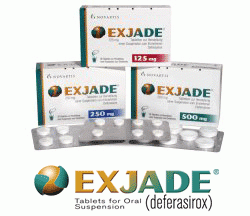Shortage of Thalassemia Medications Threatens the Lives of Thousands of Patients

Thalassemia, also known as Mediterranean anemia, is classified into two main types: Alpha Thalassemia and Beta Thalassemia. Patients with thalassemia rely on blood transfusions every 21 days for life. This results in an excessive buildup of iron in the body, particularly in the heart and liver, leading to organ failure and eventual death if iron-chelating medications are not administered.
The number of thalassemia patients continues to rise, and the Thalassemia and Hereditary Blood Disorders Care Center has witnessed an increasing influx of patients. This situation places a heavy burden on the center, making it increasingly difficult to provide essential medications, especially iron chelators, which were unavailable in previous periods. This shortage has had a serious impact on patients’ health, causing dangerous complications due to iron overload.
Dr. Ahmed Shamsan Al-Maqrami, President of the Yemeni Society for Thalassemia and Hereditary Blood Disorders, confirmed that the unavailability and shortage of essential medications in the pharmaceutical market have contributed to the rise in mortality among patients. Over the past three years, more than 130 deaths were recorded out of 4,400 registered patients with thalassemia and sickle cell anemia in the capital, Sana’a. Dr. Al-Maqrami noted that the absence of iron-chelating medication leads to iron accumulation in the heart and liver, causing life-threatening complications.
He emphasized that thalassemia patients receive no local support or international humanitarian intervention. The annual cost of caring for a single patient can reach up to 4 million Yemeni Riyals, a figure many consider exorbitant, yet it reflects the reality. This high cost has discouraged philanthropists and businesspeople from sponsoring patients, limiting their support to the donation of certain types of medications, which require substantial funding and a large operating budget.
Dr. Mukhtar Al-Qubati, Director of the Thalassemia Center, pointed out that the cost of a single box of Exjade exceeds $400, while a vial of Desferal injection costs around $4 according to the official manufacturer, Novartis. The administration of Desferal requires a special infusion pump that must run for 5 to 10 hours daily, with the device itself priced at approximately $500.
The center’s Director of Procurement and Warehousing reported that since early April, the center has sent urgent appeals to international health organizations and followed up with the Ministry of Finance for the allocation of necessary funds to purchase medications. He also indicated that the last approved annual budget for thalassemia and sickle cell patients in 2014 was $540,000, which is insufficient in light of rising patient numbers and new cases being added to the program. This budget is part of the general state budget allocated by the Ministry of Finance, which totals YER 2,366,870,000. It is worth noting that thalassemia medications are available in Yemen through local distributors but are rarely stocked in pharmacies.
The estimated cost of purchasing just four types of medications for three months alone amounts to around $321,000.
The center has expressed its deep concern about the worsening conditions of patients and appeals to all local and international organizations, as well as public health authorities, to provide medical support and help save the lives of thousands of patients.
A parent of three thalassemia patients shared their struggle:
“I have three children with thalassemia who require blood transfusions every 21 days. Their iron levels are dangerously high — one of my children has reached an iron level of over 20,000, while the normal level should not exceed 300. I fear for their health, and the center currently has no iron chelation medication. We simply cannot afford to purchase it from abroad.”
The growing number of registered patients at the center is largely attributed to the lack of adherence to premarital medical testing. This continues to result in the birth of new children with the disease, affecting not only individual families but society as a whole.








